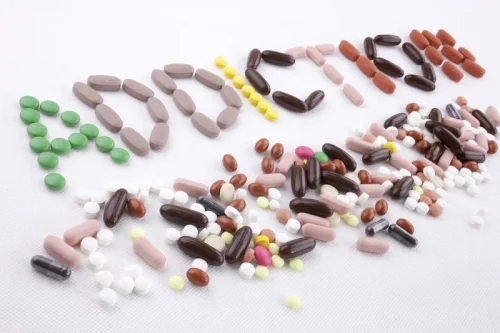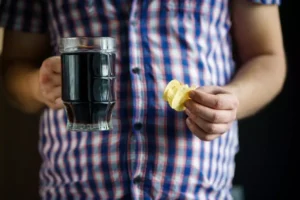
They know they shouldn’t, and they may try to practice coping behaviors. However, their negative mindset continues to negate other protective factors. Restoring normal brain function is difficult, which is why many people relapse during recovery. Depending on the duration and severity of a person’s addiction, it can take months or years of abstinence for the brain to recover from substance abuse. At that time, there is typically a greater sensitivity to stress and lowered sensitivity to reward. The risk of relapse is greatest in the first 90 days of recovery, a period when, as a result of adjustments the body is making, sensitivity to stress is particularly acute while sensitivity to reward is low.
Consider Medication
Creating a plan for how to act when you encounter these triggers can be very helpful. It may be a specific person, place, or emotion that caused you to turn to drugs or alcohol. Whether through artistic expression, outdoor activities, or social events, leisure activities offer a way to recharge and balance one’s life. By incorporating these self-care strategies into a recovery plan, individuals can enhance their ability to remain sober and live a satisfying life post-recovery. Adopting a healthy lifestyle by engaging in regular exercise, eating a balanced diet, and ensuring adequate sleep forms the foundation of self-care in recovery. These habits not only improve physical health but also bolster mental wellness.
What to Do When You Feel the Urge to Self-Harm and Relapse

It helps individuals develop coping skills, build resilience, and direct challenges without resorting to substance abuse. People who attend therapy learn skills and strategies for preventing relapse. During rehab, many people create specific plans for risky situations or times when they feel tempted to use drugs or drink alcohol. The recovering brain is susceptible to depression, anxiety and other mental health issues. Using drugs or alcohol can seem like the easiest way to feel happy or normal. Loneliness and a lack of social support can also make alcohol or drug use more appealing.
- Recovery is a developmental process and relapse is a risk before a person has acquired a suite of strategies for coping not just with cravings but life stresses and established new and rewarding daily routines.
- Reminders of your addiction can trigger relapse during recovery.
- Going to a meeting and sharing your experience with others in recovery can help you remember that you are not alone.
- At this point, getting a family member or close friend to help could get you back on track.
Types of Addiction Relapse
Getting appropriate treatment for co-occurring mental health and medical conditions can also help reduce your risk of relapse. Participating in a recovery program and building a support network is essential to preventing relapse. In addition to seeking professional treatment, you might consider joining a 12-step program or other mutual support groups. This is not to say that a relapse should not be taken seriously. Good treatment programs plan ahead for the possibility by including relapse prevention as part of the process. When patients with relapsing-remitting MS are diagnosed, they are prescribed medications to take regularly to decrease the risk of relapses.
Living a Life in Recovery
Good treatment programs have relapse prevention as part of their recovery process. One of the most dangerous aspects of relapse is the increased risk of overdose. When people use alcohol or other drugs for a long period of time, they develop tolerance.
Press Play for Advice On Recovery
It’s important to find a professional who is skilled and a good fit for your needs. Therapeutic interventions like art and music therapy, yoga, and relaxation techniques can also support recovery by improving mental well-being and reducing stress. Maintaining a strong support network is also beneficial, as social connections can offer encouragement and understanding. Research indicates that early identification and response to slips can prevent a full-blown relapse, highlighting the importance of vigilance and support systems in maintaining long-term recovery.
Warning Signs and Stages of a Relapse

Since roses symbolize healing for me, I took it as a sign of hope … that I won’t plummet too far … there are things in this life that I’m meant to do. By Geralyn Dexter, PhD, LMHCDexter has a doctorate in psychology and what to do after a relapse is a licensed mental health counselor with a focus on suicidal ideation, self-harm, and mood disorders. Upon relapse, some individuals may require inpatient treatment to stop using and manage symptoms of withdrawal.
And all strategies boil down to getting comfortable with being uncomfortable. Engaging in self-care may sound like an indulgence, but it is crucial to recovery. For one, it bolsters self-respect, which usually comes under siege after a relapse but helps motivate and sustain recovery and the belief that one is worthy of good things. Too, maintaining healthy practices, especially getting abundant sleep, fortifies the ability to ride out cravings and summon coping skills in crisis situations, when they are needed most. Relapse is emotionally painful for those in recovery and their families. Nevertheless, the first and most important thing to know is that all hope is not lost.

Sustaining Recovery After Relapse: Strategies for Consistency and Self-Care
- Over the years, additional research has confirmed that the steps described by Gorski and Miller are reliable and valid predictors of alcohol and drug relapses.
- You may decide you need to recommit to your recovery by entering treatment again.
- In a health condition, it would involve the return of disease symptoms.
- During rehab, many people create specific plans for risky situations or times when they feel tempted to use drugs or drink alcohol.
- They recognize that they can’t have one drink or let their guard down for a single day.
- You may feel overwhelmed for no apparent reason or unable to relax.
This isn’t just to get back in recovery but to keep you safe, as relapses often lead to accidental overdoses. There was also no evidence that Aetna applied any of Jack Kowalski’s deductible to the hospital bills. Under Florida law, any person, official or institution is immune from any civil or criminal liability if they report «in good faith any instance of child abuse, abandonment, or neglect» to law enforcement. The law states that any individual participating https://ecosoberhouse.com/ in good faith in any act authorized or required by the law is immune as well. The appeal also states that the damages which the jury awarded were excessive and improper as a result of the family’s attorneys giving misleading argument as to damages. The hospital wants a new trial based on the trial court’s «erroneous interpretation of Chapter 39» immunity statutes, the damages awarded to the Kowalski family and for any claims that remain after the appeal.

Deja tu comentario